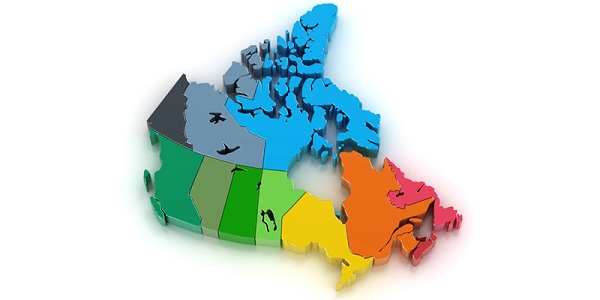News
Red Deer RCMP record some unbelievable speeds on city streets!

From an RCMP press release…
Red Deer RCMP ticket 406 speeders in April
Throughout April, the Red Deer RCMP traffic unit and Community Peace Officers (CPOs) issued 406 speeding tickets in Red Deer as part of a larger provincial traffic focus on speed for the month, including eight tickets to drivers going over 100 km/ hour within the city. Speeding tickets were issued by police officers and community peace officers on patrol in marked and unmarked vehicles and through hand-held laser campaigns at locations where speeding is frequently an issue.
During a hand held laser speed operation at 19 Street and Irwin Avenue, which is a 70 km/ hour zone, two drivers were clocked at 163 km/ hour and 122 km/ hour. In several campaigns on 67 Street, three drivers were clocked at speeds of 110, 116 and 130 in a 70 km/ hour zone and a fourth driver was caught doing 115 in a 60 zone.
Officers also handed out 55 speeding tickets in playground and school zones during the month.
“There is no justification for driving at twice the posted speed limit – these drivers are putting everyone around them in danger,” says Constable Tyler Hagel with the Red Deer RCMP Traffic Unit. “Speeding is a serious safety issue in Red Deer, and the number of tickets issued in April as well as the excessive speeds are proof of that. That’s why we continue to operate speed campaigns year round in the city.”
The Alberta Office of Traffic Safety cites brain injuries as one of the most common injuries that result from speed-related collisions, and notes that nearly one in four fatal collisions involved one or more drivers travelling at a speed too great for the given conditions.
For the month of May, RCMP and CPOs will also be focusing on motorcycle safety, in keeping with the provincial traffic focus.
Red Deer RCMP remind motorcyclists and other drivers of the importance of sharing the road and driving defensively. It’s vital to the safety of riders that they practice defensive driving, and it’s equally important that other drivers be aware of motorcyclists and give them the space they need. On a motorcycle, a rider is vulnerable, and we all play a role in motorcycle safety.
Safety tips for motorcycle riders:
Wear a helmet. By wearing an approved motorcycle helmet, you are, according to the Alberta Ministry of Transportation, 37% less likely to sustain a fatal injury in a collision. If your helmet has been damaged, replace it with a new one. Used helmets could be broken in ways that can’t always be seen.
Gear up! The right gear will protect you and keep you comfortable while you ride. Along with a helmet, riders should wear shatter-proof eye protection, a durable, bright coloured jacket, long pants, leather footwear that protects the ankles, full fingered, non-slip gloves and all weather proof riding clothes.
Stay bright and in sight! Wearing high visibility safety gear in colours like orange, yellow and white instantly draws other motorists’ eyes to you. Remember, motorcycles are smaller than most vehicles. Staying out of blind spots on roadways and in parking lots will help keep other vehicles aware of your presence.
Showing off does not pay off – but driving defensively does. Never underestimate the speed of your motorcycle. Its size makes speed deceptive. Driving defensively means being aware of your surroundings, sharing the road, changing lanes with extreme caution.
Practice makes perfect. Riders should practice on safe roads away from high traffic areas and highways to make sure they are comfortable and confident in their skills on the road.
Business
Broken ‘equalization’ program bad for all provinces

From the Fraser Institute
By Alex Whalen and Tegan Hill
Back in the summer at a meeting in Halifax, several provincial premiers discussed a lawsuit meant to force the federal government to make changes to Canada’s equalization program. The suit—filed by Newfoundland and Labrador and backed by British Columbia, Saskatchewan and Alberta—effectively argues that the current formula isn’t fair. But while the question of “fairness” can be subjective, its clear the equalization program is broken.
In theory, the program equalizes the ability of provinces to deliver reasonably comparable services at a reasonably comparable level of taxation. Any province’s ability to pay is based on its “fiscal capacity”—that is, its ability to raise revenue.
This year, equalization payments will total a projected $25.3 billion with all provinces except B.C., Alberta and Saskatchewan to receive some money. Whether due to higher incomes, higher employment or other factors, these three provinces have a greater ability to collect government revenue so they will not receive equalization.
However, contrary to the intent of the program, as recently as 2021, equalization program costs increased despite a decline in the fiscal capacity of oil-producing provinces such as Alberta, Saskatchewan, and Newfoundland and Labrador. In other words, the fiscal capacity gap among provinces was shrinking, yet recipient provinces still received a larger equalization payment.
Why? Because a “fixed-growth rule,” introduced by the Harper government in 2009, ensures that payments grow roughly in line with the economy—even if the gap between richer and poorer provinces shrinks. The result? Total equalization payments (before adjusting for inflation) increased by 19 per cent between 2015/16 and 2020/21 despite the gap in fiscal capacities between provinces shrinking during this time.
Moreover, the structure of the equalization program is also causing problems, even for recipient provinces, because it generates strong disincentives to natural resource development and the resulting economic growth because the program “claws back” equalization dollars when provinces raise revenue from natural resource development. Despite some changes to reduce this problem, one study estimated that a recipient province wishing to increase its natural resource revenues by a modest 10 per cent could face up to a 97 per cent claw back in equalization payments.
Put simply, provinces that generally do not receive equalization such as Alberta, B.C. and Saskatchewan have been punished for developing their resources, whereas recipient provinces such as Quebec and in the Maritimes have been rewarded for not developing theirs.
Finally, the current program design also encourages recipient provinces to maintain high personal and business income tax rates. While higher tax rates can reduce the incentive to work, invest and be productive, they also raise the national standard average tax rate, which is used in the equalization allocation formula. Therefore, provinces are incentivized to maintain high and economically damaging tax rates to maximize equalization payments.
Unless premiers push for reforms that will improve economic incentives and contain program costs, all provinces—recipient and non-recipient—will suffer the consequences.
Authors:
National
Liberals, NDP admit closed-door meetings took place in attempt to delay Canada’s next election

From LifeSiteNews
Pushing back the date would preserve the pensions of some of the MPs who could be voted out of office in October 2025.
Aides to the cabinet of Prime Minister Justin Trudeau confirmed that MPs from the Liberal and New Democratic Party (NDP) did indeed hold closed-door “briefings” to rewrite Canada’s elections laws so that they could push back the date of the next election.
The closed-door talks between the NDP and Liberals confirmed the aides included a revision that would guarantee some of its 28 MPs, including three of Trudeau’s cabinet members, would get a pension.
Allen Sutherland, who serves as the assistant cabinet secretary, testified before the House of Commons affairs committee that the changes to the Elections Act were discussed in the meetings.
“We attended a meeting where the substance of that proposal was discussed,” he said, adding that his “understanding is the briefing was primarily oral.”
According to Sutherland, as reported by Blacklock’s Reporter, it was only NDP and Liberal MPs who attended the secret meetings regarding changes to Canada’s Elections Act via Bill C-65, An Act to Amend the Canada Elections Act before the bill was introduced in March.
As reported by LifeSiteNews before, the Liberals were hoping to delay the 2025 federal election by a few days in what many see as a stunt to secure pensions for MPs who are projected to lose their seats. Approximately 80 MPs would qualify for pensions should they sit as MPs until at least October 27, 2025, which is the newly proposed election date. The election date is currently set for October 20, 2025.
Sutherland noted when asked by Conservative MP Luc Berthold that he recalled little from the meetings, but he did confirm he attended “two meetings of that kind.”
“Didn’t you find it unusual that a discussion about amending the Elections Act included only two political parties and excluded the others?” Berthold asked.
Sutherland responded, “It’s important to understand what my role was in those meetings which was simply to provide background information.”
Berthold then asked, “You nevertheless suggested amendments to the legislation including a change of dates?”
“My role was to provide information,” replied Sutherland, who added he could not provide the exact dates of the meetings.
MPs must serve at least six years to qualify for a pension that pays $77,900 a year. Should an election be called today, many MPs would fall short of reaching the six years, hence Bill C-65 was introduced by the Liberals and NDP.
The Liberals have claimed that pushing back the next election date is not over pensions but due to “trying to observe religious holidays,” as noted by Liberal MP Mark Gerretsen.
“Conservatives voted against this bill,” Berthold said, as they are “confident of winning re-election. We don’t need this change.”
Trudeau’s popularity is at a all-time low, but he has refused to step down as PM, call an early election, or even step aside as Liberal Party leader.
As for the amendments to elections laws, they come after months of polling in favour of the Conservative Party under the leadership of Pierre Poilievre.
A recent poll found that 70 percent of Canadians believe the country is “broken” as Trudeau focuses on less critical issues. Similarly, in January, most Canadians reported that they are worse off financially since Trudeau took office.
Additionally, a January poll showed that 46 percent of Canadians expressed a desire for the federal election to take place sooner rather than the latest mandated date in the fall of 2025.
-

 Brownstone Institute1 day ago
Brownstone Institute1 day agoThe Most Devastating Report So Far
-

 Economy2 days ago
Economy2 days agoCOP 29 leaders demand over a $1 trillion a year in climate reparations from ‘wealthy’ nations. They don’t deserve a nickel.
-

 Censorship Industrial Complex1 day ago
Censorship Industrial Complex1 day agoAnother Mass Grave?
-

 ESG15 hours ago
ESG15 hours agoCan’t afford Rent? Groceries for your kids? Trudeau says suck it up and pay the tax!
-

 Alberta1 day ago
Alberta1 day agoMAiD In Alberta: Province surveying Albertans about assisted suicide policies
-

 Energy2 days ago
Energy2 days agoOttawa’s proposed emission cap lacks any solid scientific or economic rationale
-

 Alberta2 days ago
Alberta2 days agoOn gender, Alberta is following the science
-

 International16 hours ago
International16 hours agoElon Musk praises families on X: ‘We should teach fear of childlessness,’ not pregnancy



